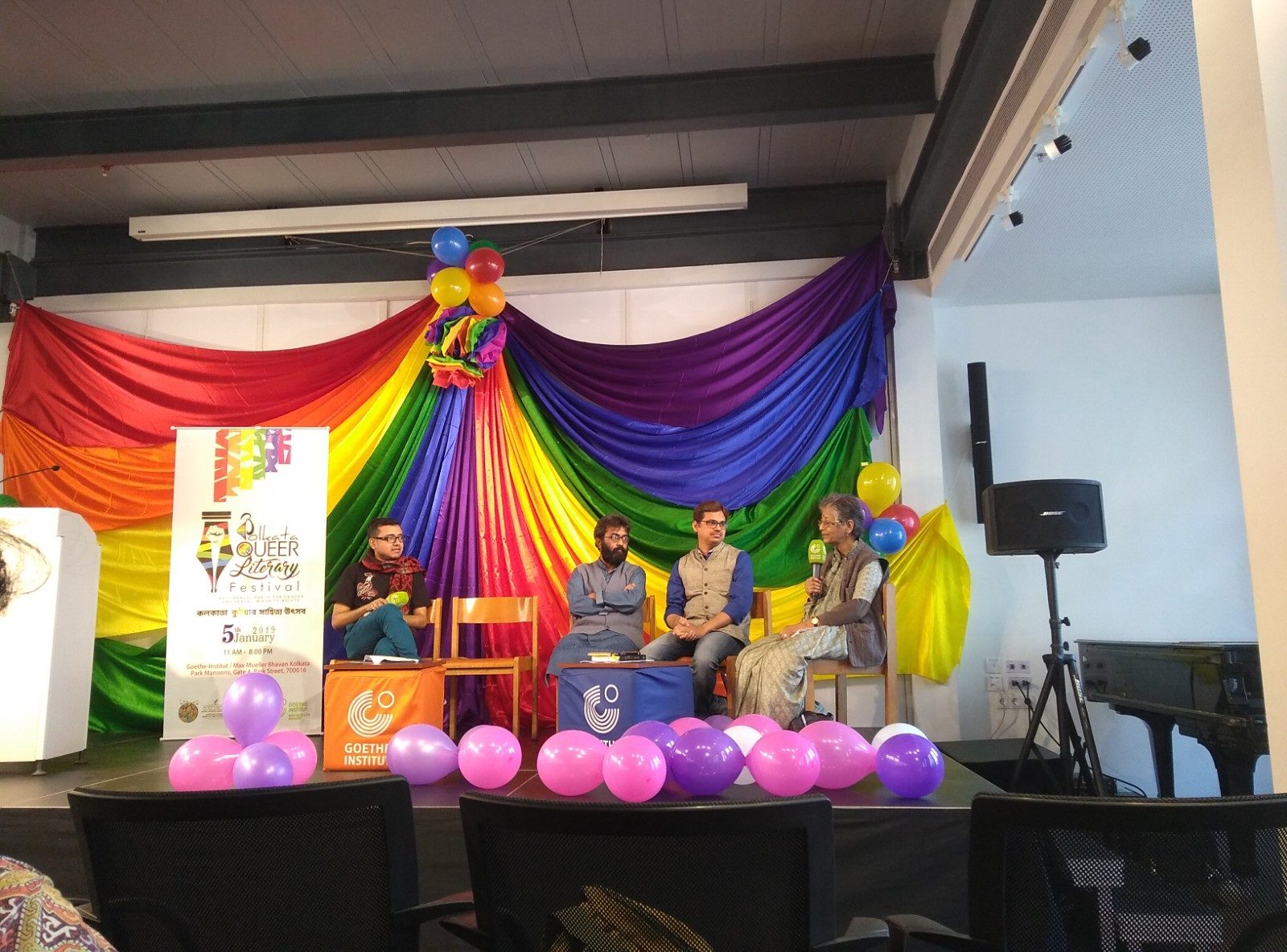Queer Literary Festival in Kolkata focused on the long history of queer narratives and its bright future
On September 6, 2018, the Supreme Court of India had decriminalised Section 377 of the Indian Penal Code, which prompted millions to show support and thousands to come out of the closet without the fear of prosecution. Section 377 referred to as “unnatural offences” and said that whoever voluntarily had carnal intercourse against the order of nature would be punished with imprisonment for life.
Kolkata takes pride in being India’s first city to hold the Pride Parade and advocate for LGBTQIA (Lesbian, Gay, Bisexual, Transgender, Queer, Intersex, Asexual plus other marginalised groups) rights. The city saw two Pride Walks, one a Celebratory walk on 16 September 2018 after the deciminalisation, and a Pride Walk on December 30, 2018. And now the first ever Queer Literary Festival was held in the city on January 5, 2019.

The festival – held in Goethe Institut Max Muller Bhavan – aimed to give voices and present the long history of queer narratives that broke away from the heteronormative and linear structures of truth. Queer literature has been written through pamphleteering, leaflets, little magazines, self-publication and activism narratives. The one-day event focused on multiple issues that plague the Indian LGBTQIA community. Individual struggles to the collective resistance, to problems of mainstream publication, to the regressive Transgender Bill, voices of religious minority and empathy.
Three mainstream publication from Bengali and academic English publication participated in the literary festival to discuss the problems and potential of publishing queer narratives in the mainstream market. Executive publisher of Saptarshi Prakashan, Sourav Mukhopadhyay, CEO of Dey’s Publication Subhankar Dey and Director of Stree-Samaya Book Mandira Sen participated in the session and engaged in an hour an half long dialogue.

Aparna Banerjee, a transgender woman and queer activist and initiator of Chandanagar Pride March engaged in conversation with Prabhat Majumder, a transgender sportsman, discussing the lack of understanding in people of power about a transperson’s life and body and mental experience or of the transgender community and harm the Transgender Bill 2018 does to the community. Anindiya Hajra, a transgender rights activist and founder of Pratyay Gender Trust, was the moderator for the session.
The everyday struggles of Queer people and literature as resistance was discussed by Aulic – a writer and photographer from Dhaka who lives in Berlin now. She spoke about her stories, music, and experiences. Tista a transgender actress and director of SRS Solution, Mohammad Reyaz, assistant professor of Journalism and Mass Communication and rights activist from Aliah University was voice of minority community and Abhijit Majumber, a professor from IIT Mumbai and writer and researcher of queer experiences and human rights spoke on the negotiations of queer persons on a daily basis.
This was followed by a session on the future of queer magazines post 377, Akanksha of Swakanthhe a bi-lingual magazine, Arijit Das of BongQ a Bangla Queer Magazine and Sumi Das of Motiribarta a queer magazine from and Pawan Dhall of Varta a English Queer webzine engaged in discussions of the history of publication to supporting the voices from margins, on magnifying the reach of the narratives to common masses.

The festival ended with a two hour long session, where various voices from the rainbow community recited their stories and experiences through their own written words. Max Muller Institute again proved to be an institute of reason and progress by being an encouraging host.


Comments are closed.